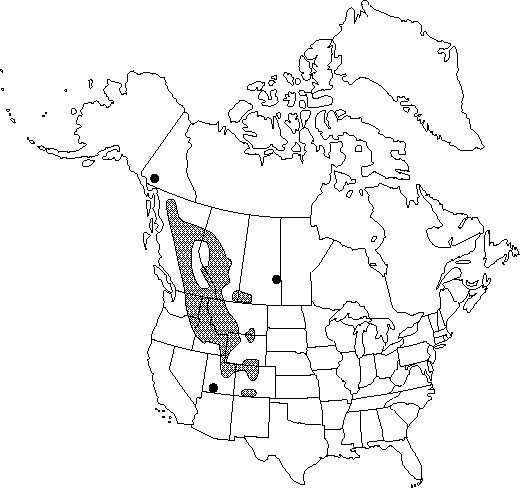Clematis occidentalis var. grosseserrata
Brittonia 23: 370. 1971.
Endemic
Basionym: Atragene grosseserrata Rydberg Bull. Torrey Bot. Club 29: 156. 1902
Synonyms: Clematis occidentalis subsp. grosseserrata (Rydberg) R. L. Taylor & McBryde
Treatment appears in FNA Volume 3.
Stems ± viny, climbing or trailing, 0.25-2.5 m. Leaves: leaflets unlobed or occasionally 1-3-lobed, 2-11 cm, margins entire or less often shallowly crenate-serrate. Flowers: sepals often eventually wide-spreading, violet-blue to pale blue or rarely white, lance-ovate, 3-6 cm, margins often ± fluted, tips acuminate. 2n = 16.
Phenology: Flowering spring–early summer.
Habitat: Often deep, fine soils in shady forest, also cliffs and other rocky sites in open woods and thickets
Elevation: 400-2800 m
Distribution
Loading map...

Alta., B.C., Sask., Yukon, Colo., Idaho, Mont., Oreg., Utah, Wash., Wyo.
Discussion
The names Clematis columbiana (Nuttall) Torrey & A. Gray and C. verticillaris var. columbiana (Nuttall) A. Gray have long and frequently been misapplied to this taxon. This erroneous usage continues in some horticultural references.
Selected References
None.
Lower Taxa
None.